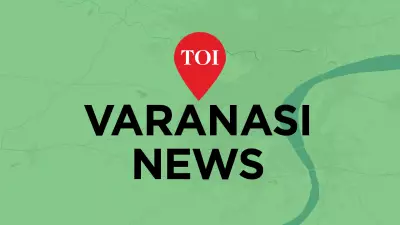
Majority Support for Class 6 Hindi Introduction Emerges in Pune Meeting
Education experts, teachers, and political representatives in Pune have voiced strong opposition to introducing Hindi as a third language from Class 1, instead advocating for its implementation from Class 6 during a crucial public consultation meeting. The gathering was organized by Maharashtra's three-language formula committee headed by prominent educationist Narendra Jadhav.
Background: The Controversial Language Policy
The debate over Hindi instruction timing comes after the state government's earlier plan to make Hindi compulsory as a third language faced severe backlash in April. Following widespread criticism from educationists, language specialists, and political parties, Chief Minister Devendra Fadnavis established a state-level committee to examine the issue thoroughly. This diverse committee includes education experts, linguists, and child psychiatrists tasked with submitting a comprehensive report.
During the Pune meeting, participants were specifically asked to share their perspectives on whether Hindi should be introduced in schools starting from Class 1, 3, 6, or 9. An additional question explored whether conversational Hindi should be taught at earlier stages without formal examinations.
Education Leaders Voice Concerns About Student Burden
Nandkumar Sagar, state secretary of the Maharashtra State Secondary and Higher Secondary School Headmaster's Association, emphasized that adding a third language too early could overwhelm students. "A third language can put more load on students, and accordingly Hindi should be introduced from Class 6," Sagar stated, while also rejecting the need for conversational Hindi in earlier grades.
Dr. Noor Jahan Shaikh from the Spoken Marathi Academy at Azam Campus proposed a structured language introduction approach: "The mother tongue or Marathi should be the only language introduced from Class 1. For Class 3, English can be introduced as it is the language of business and the world. From Class 6 onwards, Hindi can be taught. Later, options for third languages like Urdu and others should also be given."
The meeting saw notable educationists including Vasant Kalpande, Bhau Gawande, Shivaji Kamthe, Prasad Gaikwad, Mahendra Ganpule, and Nandkumar Sagar all endorsing the introduction of Hindi from Class 6 onward.
Divergent Views and Alternative Suggestions
While the majority supported Class 6 implementation, some participants offered contrasting perspectives. Social worker Girish Prabhune reported that children in schools he operates "do not have a problem learning multiple languages at once."
Other suggestions included completely avoiding Hindi as a third language or allowing languages other than Hindi to serve as the third language option. Anand Katikar, Professor at the Department of Marathi at Fergusson College, urged caution based on past experiences with English instruction.
"Even though English was introduced in 2000 as an optional language, it has now become compulsory with exams from Class 1 onwards," Katikar noted. "What have we achieved with English education from Class 1? A survey should be done first. After that, the policy should be decided. There is no problem with Hindi being conversational from Class 3 and formal from Class 9. Teachers should also be trained for this."
Political Participation and Teacher Perspectives
The meeting attracted significant political engagement, with BJP Rajya Sabha MP Medha Kulkarni drawing from her teaching experience. "In my many years of experience as a teacher I have observed that kids have a great ability to absorb things. Maybe teachers or the system face pressure in teaching but the kids do not," she commented, suggesting that children's learning capacity might not be the primary concern.
The strong consensus emerging from the Pune consultation indicates that most education stakeholders prefer a gradual approach to language introduction, prioritizing Marathi and English in early years while deferring formal Hindi instruction to middle school. The committee's final recommendations are awaited as it continues gathering input from across Maharashtra.





